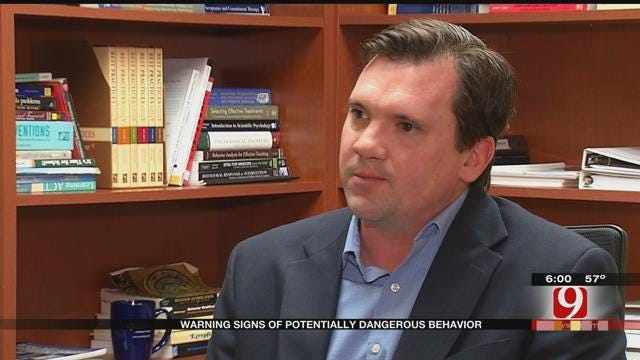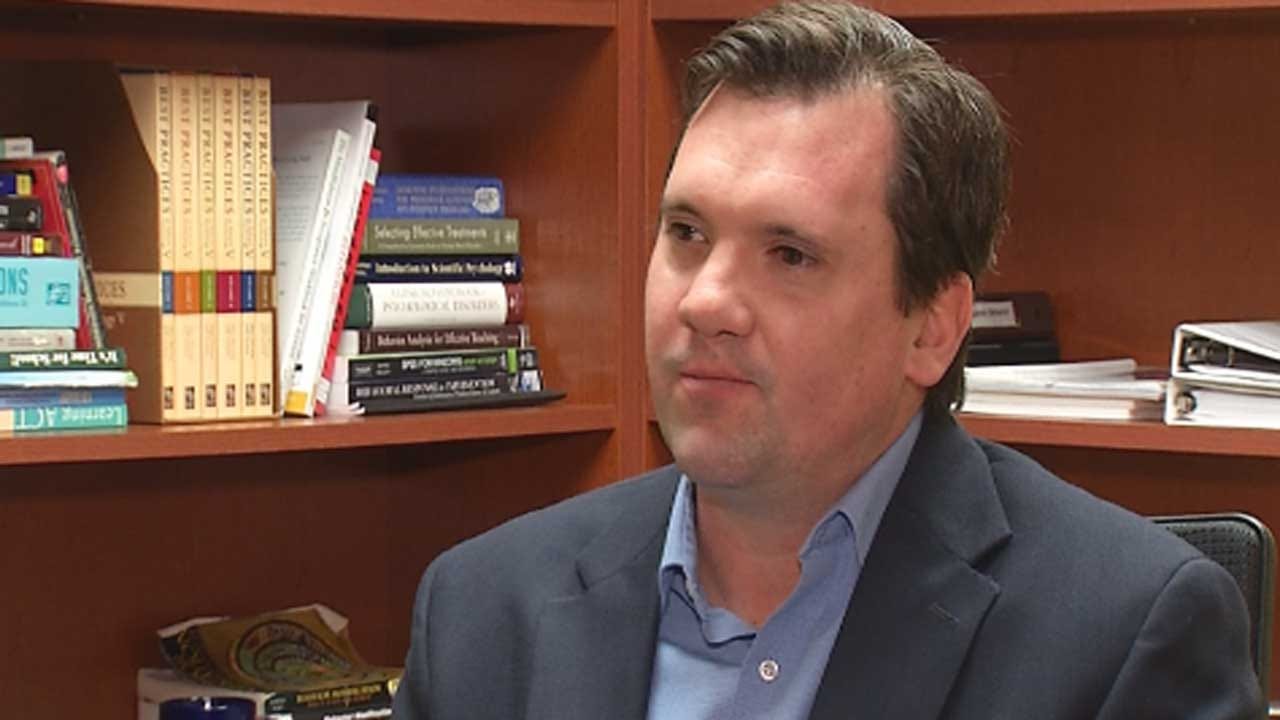UCO Psychologist Outlines Warning Signs Of Dangerous Behavior, Mental Illness
<p>UCO Assistant Professor of Psychology, Dr. Scott Singleton studies what makes the mind tick -- what motivates the good and the bad behavior. </p>Thursday, December 3rd 2015, 6:29 pm
UCO Assistant Professor of Psychology, Dr. Scott Singleton studies what makes the mind tick -- what motivates the good and the bad behavior. But he's still surprised and incredibly saddened by each mass casualty reported across the county.
“I’m always thinking about what could’ve been done to prevent it. Or was there anything that could’ve been done to prevent it?” Singleton asked.
Singleton said there is some kind of relationship between mental illness and violent acts. And there are certain warning signs that can appear before becoming a crisis.
The biggest is change. For example, if the person you know suddenly becomes less social, starts ignoring calls from those close to them, or becomes consumed by problems that seemingly have no solution.
“People might have a history of perseverating on problems or a little bit of withdrawal but then they have these events in their life, financial hardship, lack of employment, those things can kind of accelerate the problem that already existed and can result in aggressive or violent behaviors,” he explained.
But Dr. Singleton said this doesn't normally happen all at once. People don't typically snap, he said. There is time to step in and help.
“Making sure that you’re available to that person as a family member, as a friend. Not relying on them for all the communication. If you start seeing something, get in contact with them, talk with them, make sure they have access to you and access to anything else they need,” he recommended.
More Like This
April 7th, 2025
Top Headlines
April 8th, 2025










